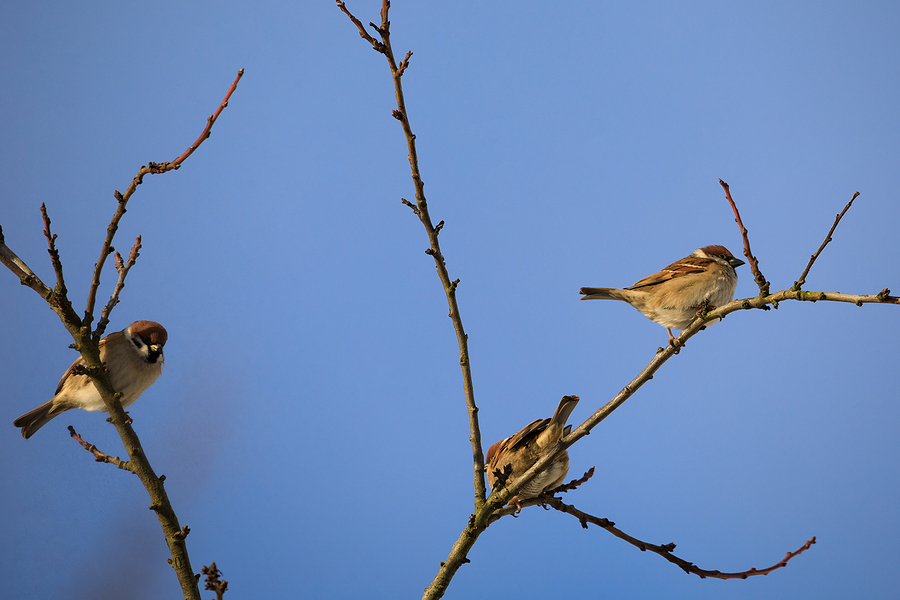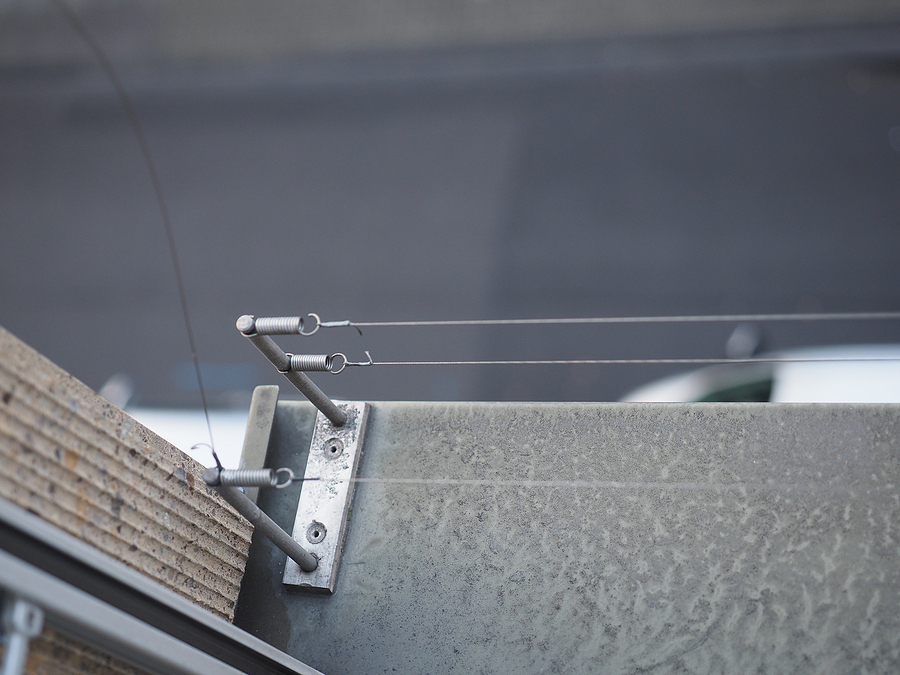As winter settles over Virginia, the sight of birds can be a welcome splash of life against a grey backdrop. However, for many homeowners and property managers in areas like Richmond, this season brings an unwelcome increase in nuisance birds seeking food and shelter. The problems they create, from property damage to health risks, are more than just a minor annoyance. Understanding why these birds become pests and how to manage them is key to protecting your property this winter.
This guide will walk you through the reasons behind winter bird problems and introduce you to the common culprits in Virginia. More importantly, it provides actionable steps for effective bird pest control and explains when it’s time to call in a professional wildlife control service. By the end, you’ll have the knowledge you need to keep your home or business bird-free.

Why Birds Become a Nuisance in Winter
Seasonal changes directly impact bird behavior. As the temperature drops and natural food sources become scarce, birds are driven to find new, reliable sources of food and warm, sheltered places to roost. This search often leads them straight to our homes and businesses.
Food Scarcity
Snow and frozen ground cover up seeds, insects, and berries, forcing birds to look for alternatives. Unsecured trash cans, pet food left outdoors, and even poorly maintained bird feeders can become a primary food source, attracting large flocks.
Search for Shelter
Cold weather and harsh winds prompt birds to seek protection. They find refuge in attics, vents, chimneys, and under eaves. These cozy spots protect them from the elements but can lead to significant structural damage and fire hazards for property owners.
Migration Patterns
Virginia is part of a major migratory path. During winter, the state can see a sudden influx of bird populations looking for temporary or permanent wintering grounds, increasing the likelihood of an infestation on your property.
Common Nuisance Birds in Virginia
While many bird species are harmless, a few are particularly problematic for homeowners in Richmond and the surrounding areas. Identifying these common nuisance birds is the first step in effective bird control.
Starlings
Starlings are an invasive species known for gathering in large, noisy flocks. Their droppings are acidic and can corrode building materials, paint, and metal. They often build nests in attics and vents, creating fire risks and spreading mites.
Pigeons
Often called “rats with wings,” nuisance pigeons are a common sight in urban and suburban areas. They are not shy around humans and will roost on ledges, roofs, and balconies. Their nests can block gutters and drainage systems, while their droppings carry diseases and create slippery, hazardous surfaces.
House Sparrows
Like starlings, House Sparrows are an invasive species that aggressively competes with native birds. They are small but build large, messy nests in small openings like dryer vents, soffits, and commercial signage. Their nesting material is highly flammable and can pose a serious fire risk.
Request a Bird Control Inspection Today! ✅
How to Prevent Winter Bird Problems
Proactive prevention is the most effective strategy for winter bird control. Taking steps to make your property less attractive to nuisance birds can save you from costly repairs and health hazards down the line.
Secure Food Sources
The first rule of bird pest control is to eliminate easy access to food.
- Keep trash cans tightly sealed.
- Do not leave pet food or water bowls outside.
- If you have bird feeders for desirable species, use designs that deter larger birds like pigeons and starlings. Clean up spilled seed regularly to avoid attracting pests.
Block Access to Shelter
Inspect your property for any openings birds could use to get inside.
- Seal cracks and holes in your siding, foundation, and roofline.
- Install bird-proof caps on chimneys and cover vents with sturdy mesh.
- For persistent roosting on ledges or beams, consider installing bird spikes. These devices create an uneven surface that prevents birds from landing without harming them.
Use Bird Deterrents
Several humane bird deterrents can help keep nuisance birds away from your property.
- Bird Netting: This is one of the most effective methods for excluding birds from specific areas like balconies, gardens, or open-air structures. When installed correctly, it creates a physical barrier that birds cannot penetrate.
- Ultrasonic Repellers: These devices emit high-frequency sounds that are unsettling to birds but generally inaudible to humans. The effectiveness of these tools can vary depending on the species and the environment, but they can be a useful part of a broader bird repellent strategy.
- Visual Deterrents: Reflective tape, scare-eye balloons, and predator decoys (like owls or hawks) can frighten birds away. For best results, move these deterrents periodically so birds don’t become accustomed to them.
Maintain a Clean Property
Regular cleaning is a simple yet powerful bird repellent. Remove nesting materials as soon as you find them and clean up bird droppings promptly. Droppings contain pheromones that attract other birds, so keeping surfaces clean helps break the cycle of infestation.

Understanding Legal Considerations in Virginia
When dealing with nuisance birds, it’s crucial to act within the law. Many bird species are protected under federal and state regulations. The Virginia Migratory Bird Act protects most native bird species, making it illegal to harm, capture, or disturb them or their nests without a permit.
However, invasive species like starlings, pigeons, and House Sparrows are generally not protected and can be controlled more freely. It’s also important to check local ordinances in Richmond or your specific city, as there may be rules regarding bird feeding or the use of certain deterrents.
Always prioritize humane treatment. The goal is to deter and exclude birds, not to harm them. A professional wildlife control service will be well-versed in these laws and can ensure all bird nest removal and control methods are compliant.
When to Call for Professional Help
While DIY methods can be effective for minor issues, some situations require professional expertise. If you’re facing a large infestation, if birds have gotten inside your home, or if you’re unsure how to handle the problem safely and legally, it’s time to call a wildlife control service.
Professionals have the tools, experience, and knowledge to:
- Safely remove birds and nests from inaccessible areas like attics and vents.
- Identify and seal all potential entry points to prevent future infestations.
- Implement large-scale deterrent solutions like commercial-grade bird netting.
- Ensure all actions comply with state and federal wildlife laws.
Key Takeaways
Don’t let nuisance birds take over your Virginia home this winter. By understanding their behavior and taking proactive steps to make your property less inviting, you can avoid the damage and health risks they pose. Secure food sources, block entry points, and use humane deterrents to get rid of birds effectively.
For persistent or large-scale bird problems, professional help is your best option. A dedicated wildlife control service can provide a lasting solution that is both effective and humane.
If you’re struggling with nuisance birds in the Richmond area, contact us today for expert bird control and nest removal services. We specialize in expert bird control solutions and safe nest removal services to help protect your property. Whether it’s pigeons, starlings, or other troublesome birds, our team is here to provide effective and reliable assistance tailored to your needs. Contact us today to take the first step toward a bird-free environment.
Related Post: Dealing with Urban Bird Infestations: Tips and Solutions
